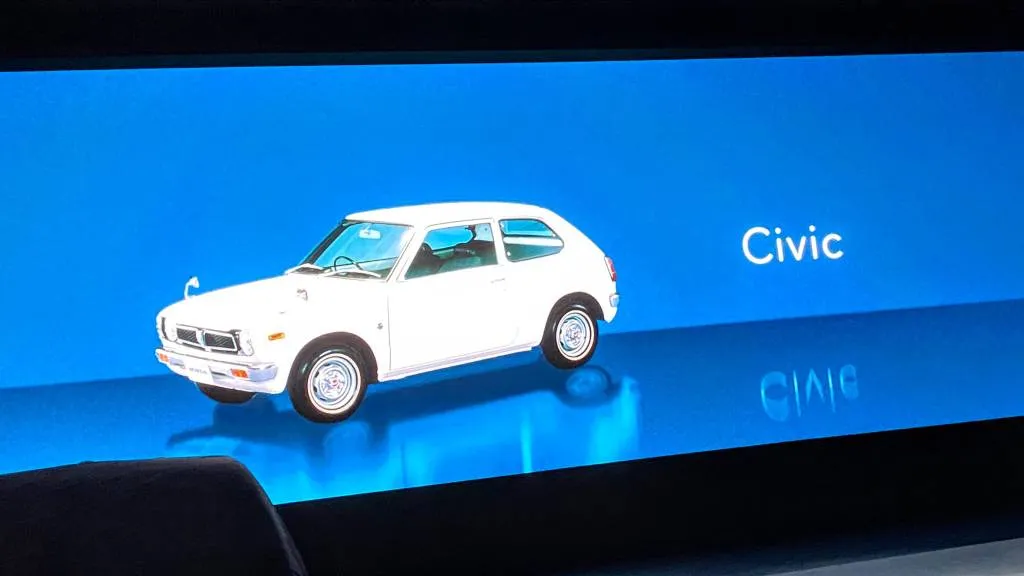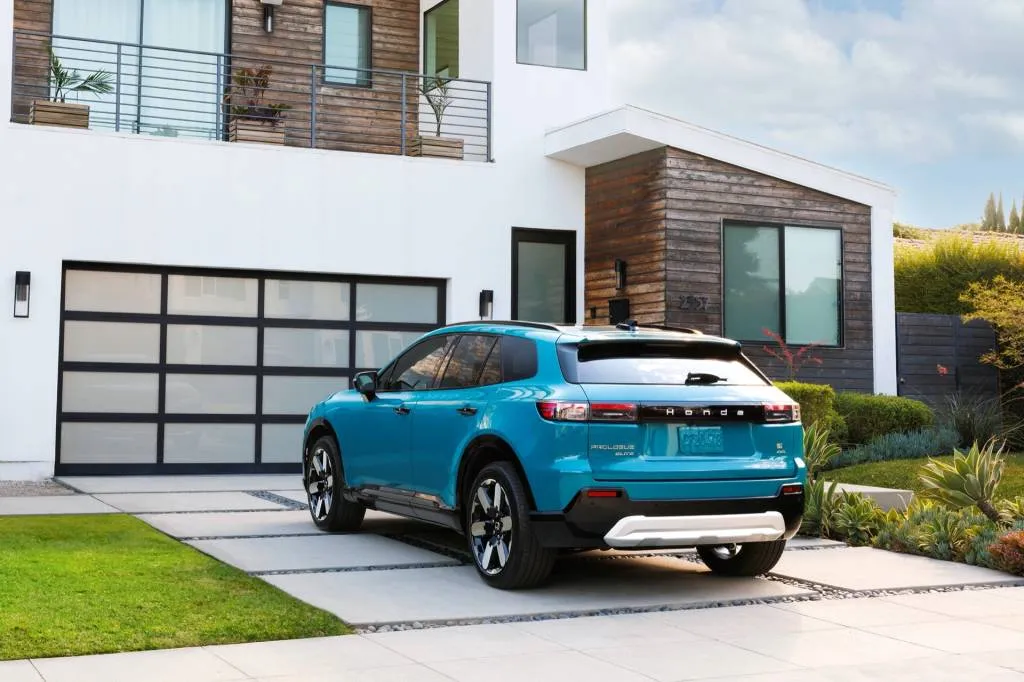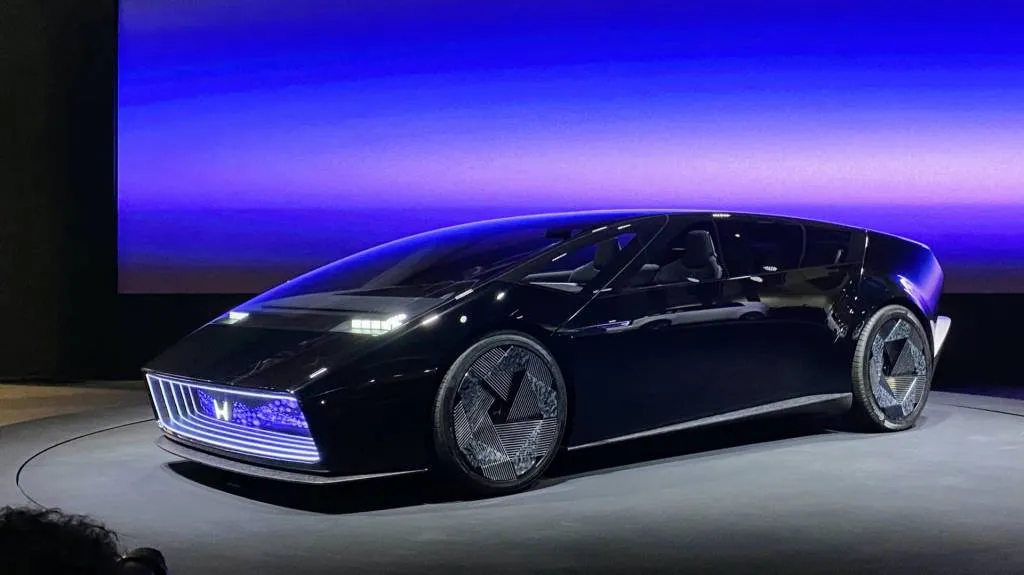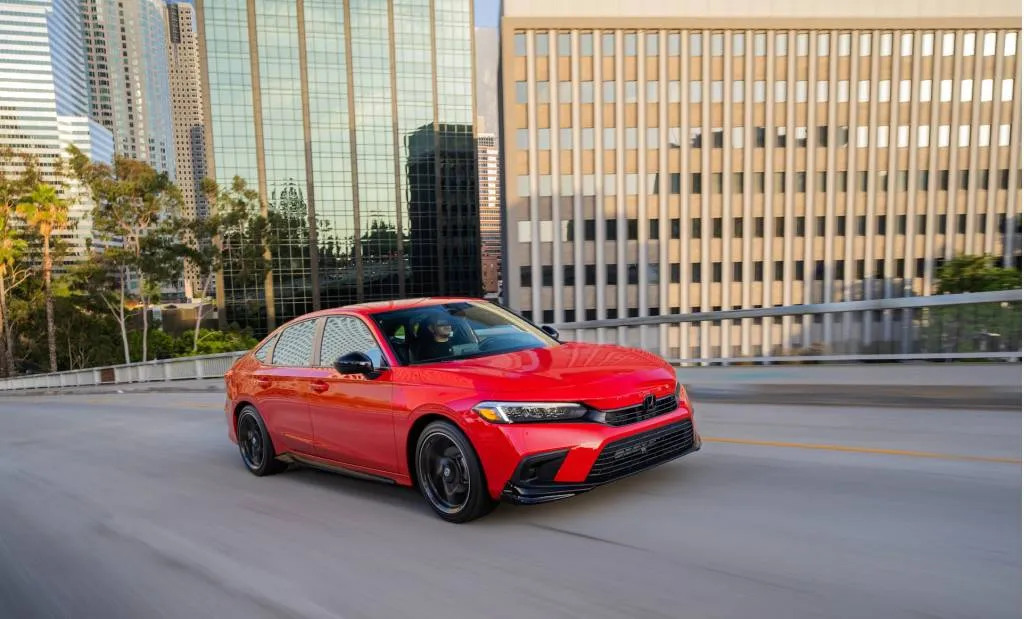Solid-state batteries may enable affordable small EV by 2030
Honda built its original reputation around affordable small cars like its Civic.
Yet decades on, segueing into an era of EVs, it has no battery-electric equivalent to the Civic. As Honda’s global CEO alluded this past week in a Q&A with EV kind of cars and various automotive and tech media at CES, it doesn’t see how the parallel pencils out quite yet.
It might take a technology breakthrough, like solid-state battery tech, before Honda sees a small, affordable car as making sense—late in the decade.
“Whether the vehicle is luxury or affordable, the cost of the battery is the same,” said Honda CEO Toshihiro Mibe, through a translator.
Mibe explained that if it wants to create a car that’s $30,000, it’s considering solid-state batteries, because the battery costs would go down, range would increase, and the cooling system could be more simplified. Otherwise it faces compromised range.

1970s-era Honda Civic – displayed in CES 2024 presentation
“Breakthrough” battery tech needed for a Civic of EVs?
“The benefit would be huge,” he added. “For small cars I think we need a breakthrough type of tech…otherwise it would be difficult.”
Honda has been working on its own all-solid-state battery tech and last year said that it’s targeting a 50% reduction in weight—or, to put it another way, a 50% boost in energy density by weight.
Mibe, with Senior Managing Executive Officer Shinji Aoyama, explained that the company would like to realize an affordable EV “very late in the 2020s.”

2024 Honda Prologue
Honda hasn’t had a U.S. EV since its limited-availability Clarity Electric, but its 2024 Prologue SUV, an effort with GM, arrives in a few months. In Europe it recently announced the discontinuation of its stylish Honda E, which costs nearly 40,000 euros and boasts a driving range of just 138 miles.
The Honda Saloon and Space-Hub concepts revealed last week at CES are built on a mid-large propulsion platform, the CEO clarified, while there will be multiple production Honda EVs based on the 0 Series built on smaller and larger platforms.

Honda Saloon Concept – 2024 CES
No Honda Accord EV or Civic EV in the near future
Why don’t those head-turning concepts bear Honda’s big brand-equity names like Accord or Odyssey?
Don’t expect any of Honda’s 0 Series models to follow existing Honda nameplates like Accord, Civic, or CR-V. According to Aoyama, the company has been looking at Honda-brand EV traction for the past few years, and it decided that it would be more difficult for the company to merely add EV versions of legacy models.
Aoyama underscored that Acura is being handled differently, though. Acura is bringing back a badge last used for a gasoline model for its upcoming Acura ZDX EV. On the other hand, Honda is in the midst of transitioning its models to hybrid propulsion—with the 2024 Honda Civic Hybrid due soon.

2024 Honda Civic sedan
In April 2022, Honda announced a partnership with GM to jointly developing affordable EVs, but that effort dissolved in October. “After we did some studies, we decided it would be very difficult to have a viable business,” summed Mibe.
GM has instead shifted to a strategy for its next-generation Bolt EUV, due in 2025, that incorporates LFP battery tech and borrows other key tech from GM’s Ultium propulsion suite. GM has already set a $34,995 starting price for its Chevy Equinox EV, with expectations of a full $7,500 EV tax credit, so it’s likely the Bolt EUV will start under $27,500.
Electric cars news.




